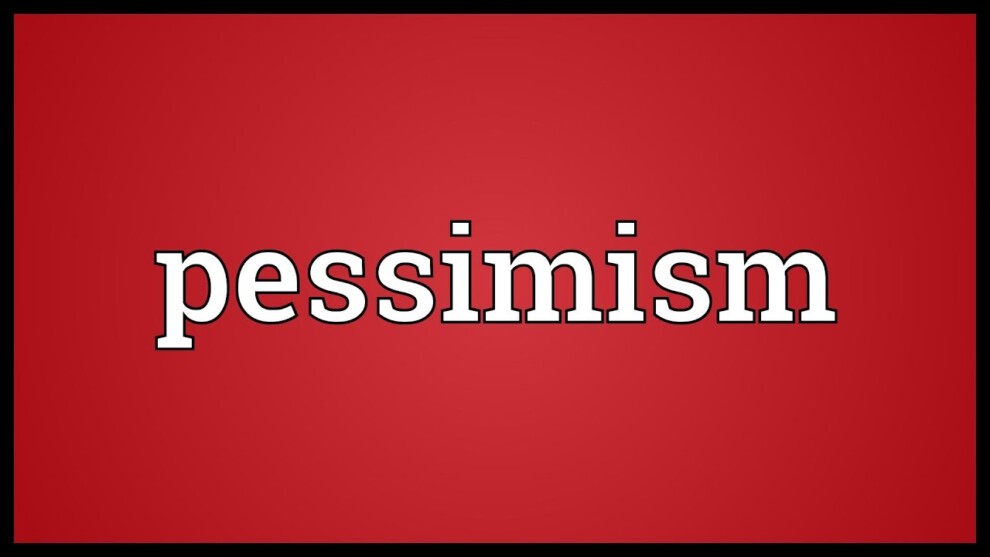This article was developed via a partnership with BetterHelp. It’s hard to hear about pessimism without also involving optimism. In many cases, optimistic people are portrayed as happier, healthier, and better off. While this may certainly be true, there are also plenty of good things about pessimism that most people aren’t aware of. The effects of being a pessimist, at least in certain situations, can extend to areas such as your mental health, self-esteem, job performance, relationships, and more. If you’ve only heard bad things about pessimism, you’re not alone. Pessimists may have a bad reputation, but rest assured there is a silver lining to seeing the glass more as half empty than half full. You can gain additional insight at https://www.betterhelp.com/advice/pessimism/ as well as continuing to read below.
What Is Pessimism?
Pessimism is a type of mindset characterized by a tendency to see what could go wrong rather than what could go right. Typically, it is a futuristic outlook on life that concentrates on worst-case scenarios instead of the silver lining. Pessimistic individuals can often be seen as negative, controlling, or hard to be around. However, this is just one side of them. Every mindset, personality, and outlook has its advantages and disadvantages. Pessimism is no different.
Optimism Vs Pessimism
The opposite of pessimism is optimism. Optimism is defined as having a hopeful attitude about the future. Optimistic people see the glass as half full, while pessimists see it as half empty. Pessimists tend to see life as dull, full of evil, and possibly even meaningless. Optimistic individuals see it more as colorful, interesting, and ultimately filled with more good things than evil. While a pessimist views obstacles as burdens and doesn’t feel they’re qualified to overcome them, an optimist welcomes hurdles because they believe they’ll make them stronger. An optimist likes to plan for the future and gets excited about it, whereas a pessimist is either fearful or reluctant to make plans because they don’t see a point.
If you’re wondering whether you’re a pessimist or an optimist, there are plenty of free online tests you can take. However, you can also be honest with yourself about how you react in most situations. Do you tend to be hopeful or negative? Hesitant or enthusiastic? Self-confident or helpless? Most people aren’t entirely one or the other. Rather, they fall in the middle of a spectrum and have qualities of both outlooks depending on the day or situation.
Benefits of Pessimism
People typically believe that being a pessimist is a bad thing. While that can be true in certain situations, there are plenty of positive aspects of pessimism. Some of these include:
You don’t get your expectations up. People are often let down because they have high expectations for people or situations. However, the pessimist expects to be disappointed in many cases, so it’s harder to upset them.
You’re more prepared. The pessimist has thought through every scenario, especially the worst-case ones. Therefore, it’s more difficult to shock them with bad news because they’ve already prepared for it.
You feel more in control. If you’ve already thought through everything and are prepared, you’re probably going to have more control over any situation that might arise. Often, the pessimist will plan ahead and end up derailing any potential obstacles or setbacks from even happening in the first place.
You react better to surprises. If you don’t expect good things from other people, it’ll probably make you a lot happier when they do surprise you with something nice.
Defensive Pessimism
Defensive pessimism is a technique that some people use to avoid anxiety about some future event or situation. It involves setting very low expectations so that there is little chance for failure. The defensive pessimist prepares for the worst so that anything better than the worst-case scenario is a success in their eyes.
As an example, consider someone who is preparing for a job interview. They’ve had plenty of successful interviews in the past and have always gotten the position they applied for. However, they tell themselves they don’t have a chance at this opportunity, which results in them over-preparing for the interview. Unsurprisingly, the interview goes great because they are so well prepared. The person avoided anxiety by telling themselves they wouldn’t get the job, but they also were ultimately successful and got what they wanted.
Consider the gamer who always wins but doesn’t expect to. Although they have all the necessary skills, experience, and talent to win the video game, they tell themselves they’ll lose because someone is probably better. However, they end up winning each time, effectively using defensive pessimism to their advantage.
Conclusion
Clearly, pessimism can be a good thing under the right circumstances and in certain situations. You can also use it in almost any scenario in life. Note that people interpret optimism and pessimism in different ways. So, it might be hard for some people to be around pessimists, who they may view as being overly negative. This is why it can be helpful to keep your thoughts to yourself if you aren’t sure how others will react. Although it serves a purpose in your mind, others might find that it drags them down. If you feel that your mindset is interfering with your life in multiple ways, it could be helpful to see a mental health professional. Sometimes when you are used to thinking or behaving in a certain way for so long, it can be hard to make changes on your own. However, a therapist or counselor can work with you to move past your established patterns of thinking and help you think more positively. Your mindset impacts your life in more ways than you may realize, and is something worth investing in.








